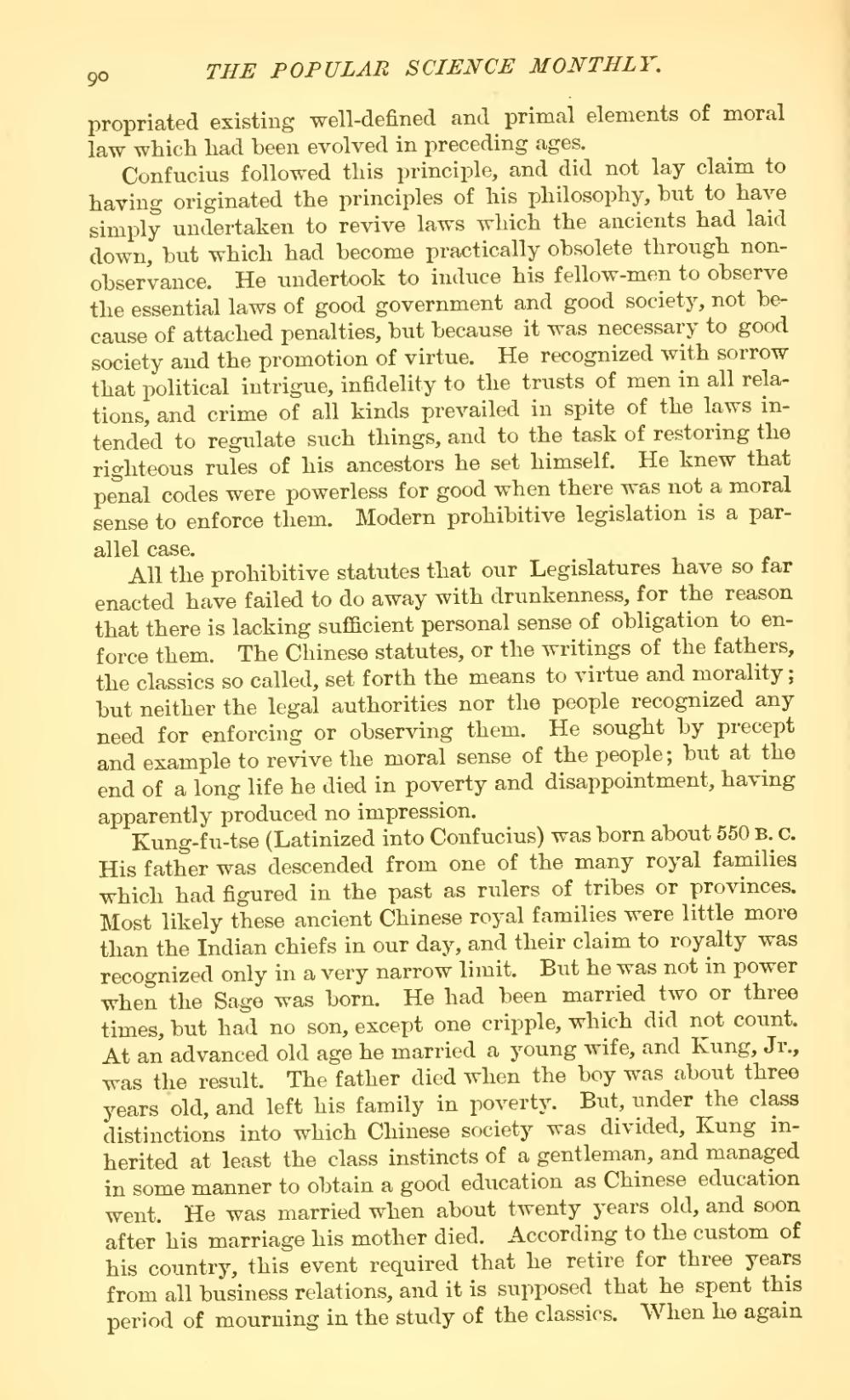propriated existing well-defined and primal elements of moral law which had been evolved in preceding ages.
Confucius followed this principle, and did not lay claim to having originated the principles of his philosophy, but to have simply undertaken to revive laws which the ancients had laid down, but which had become practically obsolete through non-observance. He undertook to induce his fellow-men to observe the essential laws of good government and good society, not because of attached penalties, but because it was necessary to good society and the promotion of virtue. He recognized with sorrow that political intrigue, infidelity to the trusts of men in all relations, and crime of all kinds prevailed in spite of the laws intended to regulate such things, and to the task of restoring the righteous rules of his ancestors he set himself. He knew that penal codes were powerless for good when there was not a moral sense to enforce them. Modern prohibitive legislation is a parallel case.
All the prohibitive statutes that our Legislatures have so far enacted have failed to do away with drunkenness, for the reason that there is lacking sufficient personal sense of obligation to enforce them. The Chinese statutes, or the writings of the fathers, the classics so called, set forth the means to virtue and morality; but neither the legal authorities nor the people recognized any need for enforcing or observing them. He sought by precept and example to revive the moral sense of the people; but at the end of a long life he died in poverty and disappointment, having apparently produced no impression.
Kung-fu-tse (Latinized into Confucius) was born about 550 B.C. His father was descended from one of the many royal families which had figured in the past as rulers of tribes or provinces. Most likely these ancient Chinese royal families were little more than the Indian chiefs in our day, and their claim to royalty was recognized only in a very narrow limit. But he was not in power when the Sage was born. He had been married two or three times, but had no son, except one cripple, which did not count. At an advanced old age he married a young wife, and Kung, Jr., was the result. The father died when the boy was about three years old, and left his family in poverty. But, under the class distinctions into which Chinese society was divided, Kung inherited at least the class instincts of a gentleman, and managed in some manner to obtain a good education as Chinese education went. He was married when about twenty years old, and soon after his marriage his mother died. According to the custom of his country, this event required that he retire for three years from all business relations, and it is supposed that he spent this period of mourning in the study of the classics. When he again
